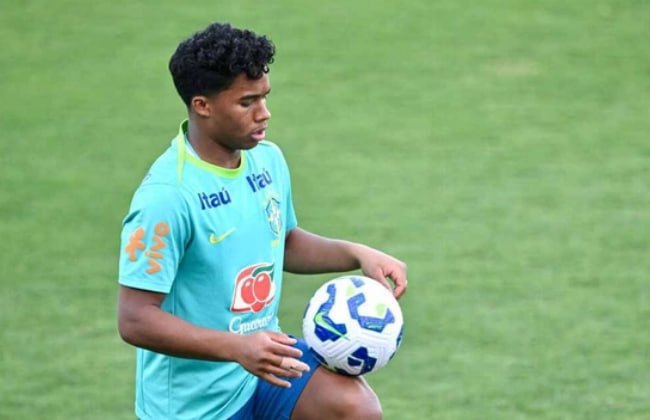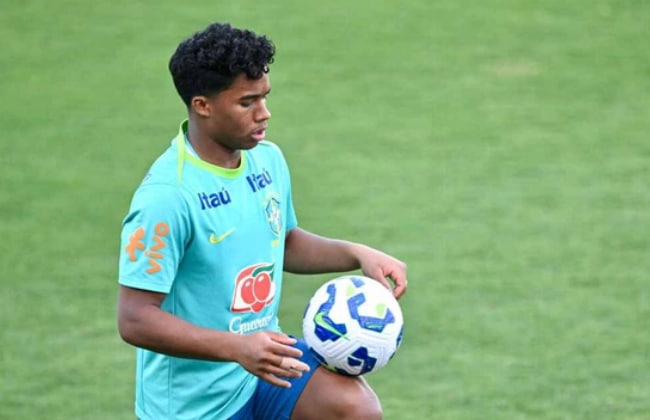Recently, the topic of whether Anthony will remain at Real Betis has heated up again. Betis has hinted that “we want to extend his loan for another year and set a £35 million buyout clause.”This news is likely to cause a stir in Manchester United’s offices.
On the surface, this appears to be just another routine extension of a player’s loan deal. However, upon closer inspection, there are several strategic considerations at play. Betis is not making arbitrary demands; every step has been carefully calculated.

1. Betis’ Calculated Strategy
Real Betis may have a prestigious name, but their financial situation is far from stable. Just as ordinary people try to save money when shopping, Betis is particularly frugal when it comes to signing players.
Last season, Betis covered approximately 84% of Anthony’s weekly salary, amounting to roughly £180,000 per week. While this figure may seem substantial, Betis isn’t actually willing to spend that much. Instead, they opted for a loan deal to keep the player on their roster, with the option to buy him outright at a later date.
Even smarter, they tied the buyout clause to Champions League qualification. In other words, if Betis fails to qualify for the Champions League, the buyout clause automatically becomes void. It’s like ordering an expensive dish at a restaurant and telling the waiter, “I’ll pay when I win the lottery.”
This move is really clever. It keeps the fans happy and gives Manchester United no immediate reason to refuse. However, for Manchester United, this is essentially a “promissory note.” Betis wants to keep Anthony for another year at minimal cost, and may even wait until his contract has only one year remaining before negotiating a lower price.
However, this isn’t the first time they’ve done this. They handled players like Bellerin and Lo Celso in the same way. So fans are now well aware that Betis’ so-called “optional buyout” is just a way of saying they don’t intend to buy him out.
Although Manchester United’s management sometimes seems a bit naive, they can’t keep letting others lead them around by the nose, can they?
2. Anthony’s “rebirth journey”
Anthony’s performance at Betis has indeed been impressive. He has appeared in 26 games, scoring 9 goals and providing 5 assists. Such statistics would be eye-catching for any team.
In La Liga, a league that emphasizes technical skill, Anthony’s technical strengths have been maximized. He is fast, has strong dribbling ability, and has become Betis’ most reliable offensive threat on the left wing.
Head coach Manuel Pellegrini even designed a special tactic for him—allowing him to roam freely on the left wing like a “ghost killer,” ready to appear at any moment and deliver a decisive blow. His chemistry with Isco and Bakambu is also highly synchronized, causing headaches for many La Liga teams.
More importantly, Anthony rediscovered the joy of playing football. During his time at Manchester United, he carried the weight of immense psychological pressure, as he had joined the club in a high-profile transfer. Every mistake was magnified, and every match was expected to deliver standout performances.
However, at Betis, he is no longer under the spotlight, allowing him to focus more on his game. He has also regained the trust of Brazil national team coach Carlo Ancelotti and was selected for the squad. This marks a true “rebirth” for Anthony.
From a football perspective, Anthony is performing better and better at Betis, and fans genuinely hope he stays. But the question is, how sincere is Betis? Do they truly want to keep this Brazilian winger, or are they just looking to get another year out of him?
3. Manchester United’s current predicament
For Manchester United, Anthony is no longer part of their future plans. New head coach Amolin is building a new tactical system, and Anthony’s position has been replaced by other players. For example, Cunha and Mbeumo are the Red Devils’ next targets.
Moreover, Anthony’s contract does not expire until 2027, and his weekly salary is as high as £200,000. This salary is a considerable burden for Manchester United at present.If Anthony continues to be loaned out, Manchester United will have to continue paying most of his salary, which is not a long-term solution.
More importantly, time is of the essence. If Manchester United continues to drag its feet on Anthony’s situation, he could get injured or his form could decline, making him even harder to sell. Manchester United is in desperate need of funds to sign new players, especially in the forward and midfield positions.
At this point, Manchester United must make a decision: continue to listen to Betis’ sweet talk, or quickly find a club that is truly willing to buy Anthony?
According to the latest reports, Bayer Leverkusen is interested in Anthony. Since Ten Hag took over as manager, Leverkusen has already invested heavily in the transfer market, signing players like Frenkie de Jong and Wirtz. They may now also be interested in Anthony.
Considering that the pace of the Bundesliga and Eredivisie are similar, Anthony should be able to adapt. If the transfer goes smoothly, Manchester United could recoup around £30 million, alleviating some of their financial pressure.
4. Three possible scenarios for the future
At present, the Anthony transfer saga continues, with all three parties engaged in a game of brinkmanship:
So, what are the possible outcomes?
Scenario 1: Manchester United accepts Betis’ proposal and continues the loan for another year.
This scenario is unlikely, as Manchester United needs to cut its losses as soon as possible. If Anthony is loaned out for another year, Manchester United would have to continue paying his high salary, which is too risky.
Scenario 2: Manchester United rejects Betis’ offer and turns to other buyers.
This is currently the most likely scenario. Manchester United has made it clear that Anthony is not part of their future plans, and they will prioritize clubs that are willing to pay the asking price.
Scenario 3: Anthony pushes for a transfer and leaves Betis.
If Betis insists on a loan without an option to buy, Anthony may actively seek a transfer. After all, he has proven his value and can easily find a starting spot at another club.
5. Professional football is ultimately a business
The transfer saga surrounding Anthony is, on the surface, a story about a player’s personal development, but behind the scenes, it is a battle of interests between two clubs.
While Betis’ “prudent financial management” is admirable, it is important to remember that football is not a charitable endeavor. Manchester United cannot afford to continue paying Anthony’s salary indefinitely, nor can they forever play the role of the “good Samaritan.”
For Anthony, regardless of his final destination, the most important thing is that he can continue to shine on the field. Perhaps this experience will serve as both a growth opportunity and a reminder: in the world of professional football, there is more than just skill and talent—there is also reality and choice.
Regardless, this transfer saga is far from over. The coming days may bring the true conclusion. Let’s wait and see.
